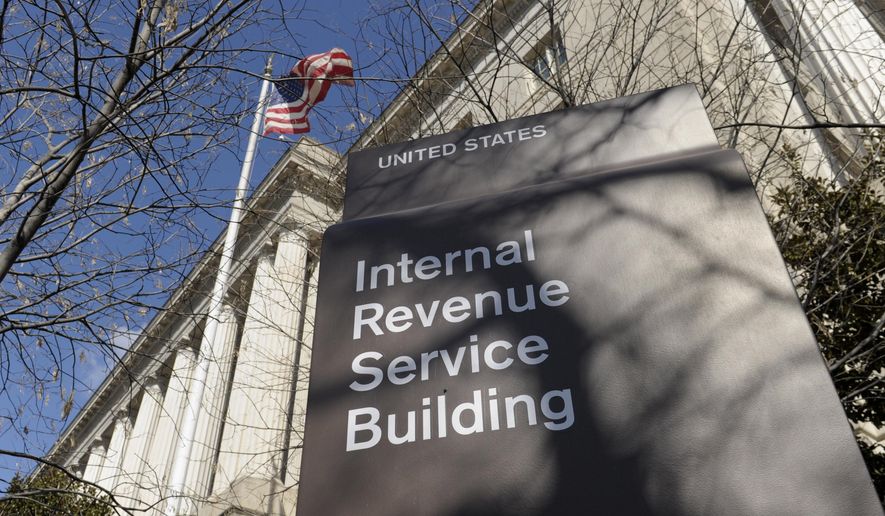A federal judge warned the Trump administration Thursday it faces an “uphill battle” in justifying the IRS’s decision to recall tens of thousands of workers, without pay, to process refunds during filing season despite an ongoing shutdown at the time.
U.S. District Court Senior Judge Richard J. Leon said he won’t pre-judge the Treasury’s move to ease the pain on filers, but that he had serious concerns about the decision.
“It’s something you’re going to have to lay out,” the judge told Justice Department attorneys. “It’s a very serious issue.”
Judge Leon is managing a set of lawsuits from workers who say the administration’s handling of the longest shutdown in history, spurred by President Trump’s demand for border-wall funding, inflicted real harm.
The impasse lasted from Dec. 22 to Friday, when Congress and the White House agreed to reopen the government until Feb. 15 to debate Mr. Trump’s demand for border-security funding.
The situation left Judge Leon’s courtroom on tenterhooks since it’s unclear if federal employees will face another shutdown and clamor for relief from the courts once again, or play the long game and argue deeper legal issues while the government remains open.
“The playing field has changed,” the judge said. “We have no idea what the future holds.”
For now, Judge Leon said the Justice Department might have “dodged a bullet” in explaining why the IRS saw fit to recall more than 30,000 workers for filing season.
The National Treasury Employees Union says the administration took too many liberties with exceptions that allow the government to force workers to report during a shutdown — for instance, to cut Social Security checks to people who rely on them.
Its lawyers say recalling people to issue refunds is not the same, so the IRS overstepped. Judge Leon’s warning to the Justice Department signaled he shared their skepticism, pending further arguments.
“We’re of course happy to hear that,” NTEU lawyer Paras Shah said.
Besides Treasury employees, a separate lawsuit argues the government should have used a Treasury judgment fund to pay air-traffic controllers who were forced to work during the shutdown, rather than forcing them to wait for backpay.
Another lawsuit says federal employees at four agencies wanted to seek paying side gigs during the shutdown, but would have been prohibited from doing so or declared “AWOL” if they refused to show up for their federal jobs.
The Justice Department said most employees are able to seek permission for side work, though Judge Leon said he needs a fuller explanation of the process.
Earlier this month, Judge Leon had been sympathetic to workers who wanted to drive an UBER or work at the local grocery store during the shutdown.
If the government shuts down again, “it would seem to me to be an area where injunctive relief would make a lot of sense,” he said Thursday.
For now, the litigants are waiting on Congress and Mr. Trump to bridge their wide differences over wall funding and strike a deal on border security. The parties seem unable to agree, raising fears of another funding lapse.
Judge Leon said if that happens, he wants both sides to brief the court during the week after Feb. 15 and reappear for a ruling from the bench on potential relief on Feb. 22.
If the government remains open, that hearing will simply become a status meeting on how to handle deeper legal issues posed by the suits.
Earlier this month, while the initial shutdown was still young, Judge Leon has said he sympathized with workers struggling to make ends meet, but that he couldn’t wade too far into a squabble between the legislative and executive branches.
At the time, he rejected the unions’ demands for swift relief, saying it would be “profoundly irresponsible” for him to issue an order that lets essential workers decide to stay home if they’re not being compensated.
• Tom Howell Jr. can be reached at thowell@washingtontimes.com.




Please read our comment policy before commenting.